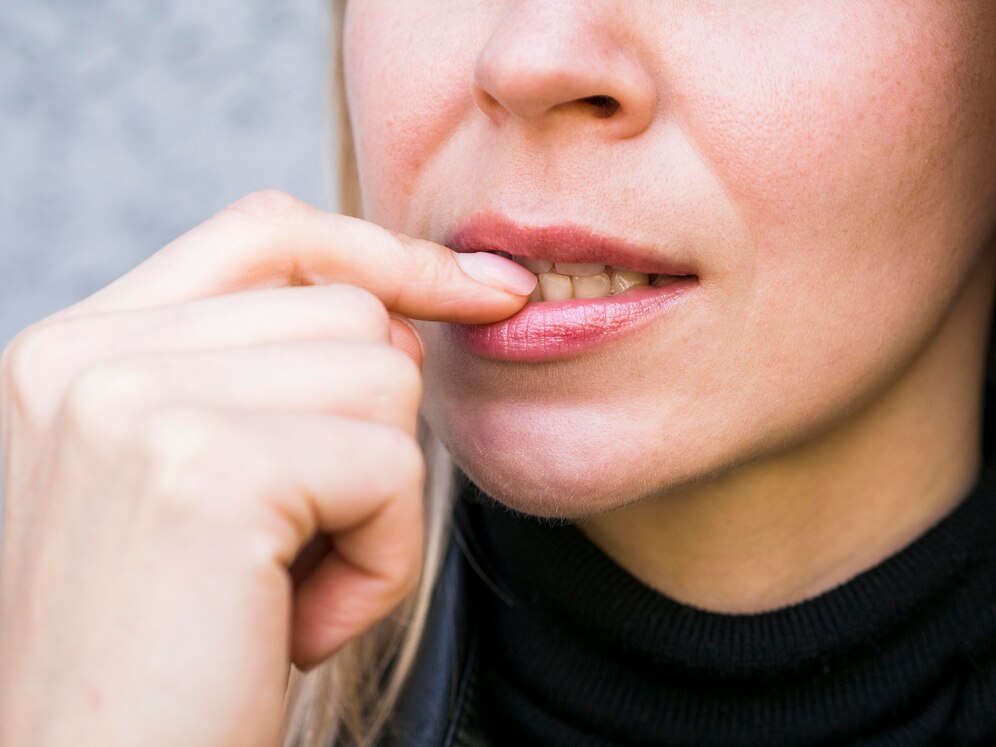Chewing hard objects such as pens, pencils, nails, or ice is a habit that many people engage in unconsciously. This habit often occurs when feeling anxious, bored, or needing physical stimulation while thinking. Although it may seem harmless, this habit can have serious effects on dental health.
Tooth Enamel Damage
Constantly chewing hard objects places excessive pressure on the teeth. This can cause small cracks that can eventually develop into more severe damage. Enamel, the outer protective layer of teeth, is very vulnerable to the high pressure caused by this habit. When the enamel is damaged, teeth become more susceptible to brittleness, and bacteria can easily enter, leading to cavities or even painful abscesses. In addition to physical damage to the teeth, this habit can also cause changes to the tooth structure, potentially damaging the natural bite alignment. It can also increase the risk of long-term dental problems.
Joint Disorders
Not only does chewing hard objects affect the teeth, but it can also lead to Temporo Mandibular Joint Syndrome (TMJ), which is a disorder of the joint between the jawbone and skull. This joint is crucial for jaw movement, and repetitive pressure from this habit can cause pain in the area. Many individuals experience symptoms such as headaches, jaw pain, and even difficulty opening the mouth due to excessive pressure on the TMJ. If left untreated, this problem can develop into a chronic condition requiring long-term care. Therefore, understanding the triggers behind the habit of chewing hard objects is an important first step in reducing its impact on health.
Recognizing the Time and Triggers
To stop this habit, it is crucial for individuals to recognize when they tend to chew on hard objects and what triggers the behavior. For instance, if this habit occurs often during stressful or tense moments, finding safer alternatives for the teeth is a good solution. Replacing hard objects with sugar-free gum can be a good option. It not only provides comfort for the mouth but also does not damage the teeth.
Additionally, some people find that using a stress ball or holding objects that do not require biting can help divert their attention from the chewing habit. Alternative activities such as drawing, writing, or playing with something in their hands can help reduce the urge to chew without damaging the teeth.
Maintaining Dental Health
Maintaining strong, damage-resistant teeth is also very important. Nutrients rich in calcium and vitamin D help strengthen the structure of the teeth and enamel. Furthermore, regular brushing, flossing, and routine dental check-ups also play a major role in preventing further damage caused by the habit of chewing hard objects. For those who have already experienced dental issues due to this habit, consulting a dentist is a wise step to receive the proper treatment and avoid complications in the future.
***
If the habit of chewing hard objects continues despite trying various methods, consulting a doctor or behavioral therapist may offer additional solutions. Techniques such as cognitive behavioral therapy (CBT) have proven effective in helping reduce unconscious habits. Therapists can help identify triggers, offer practical suggestions, and assist in transforming bad habits into healthier ones. By recognizing the health impact and working to reduce the habit of chewing hard objects, individuals can maintain better oral health, reduce the risk of injury or damage, and promote a healthier lifestyle overall.
By overcoming the habit of chewing hard objects, we can protect our dental health and prevent more serious health issues. This aligns with the achievement of SDG Goal 3: Good Health and Well-being. Additionally, through Quality Education (SDG Goal 4), especially health education, individuals can understand the risks of harmful habits like chewing hard objects.
Author : Rizky B. Hendrawan | Photo : Freepik

